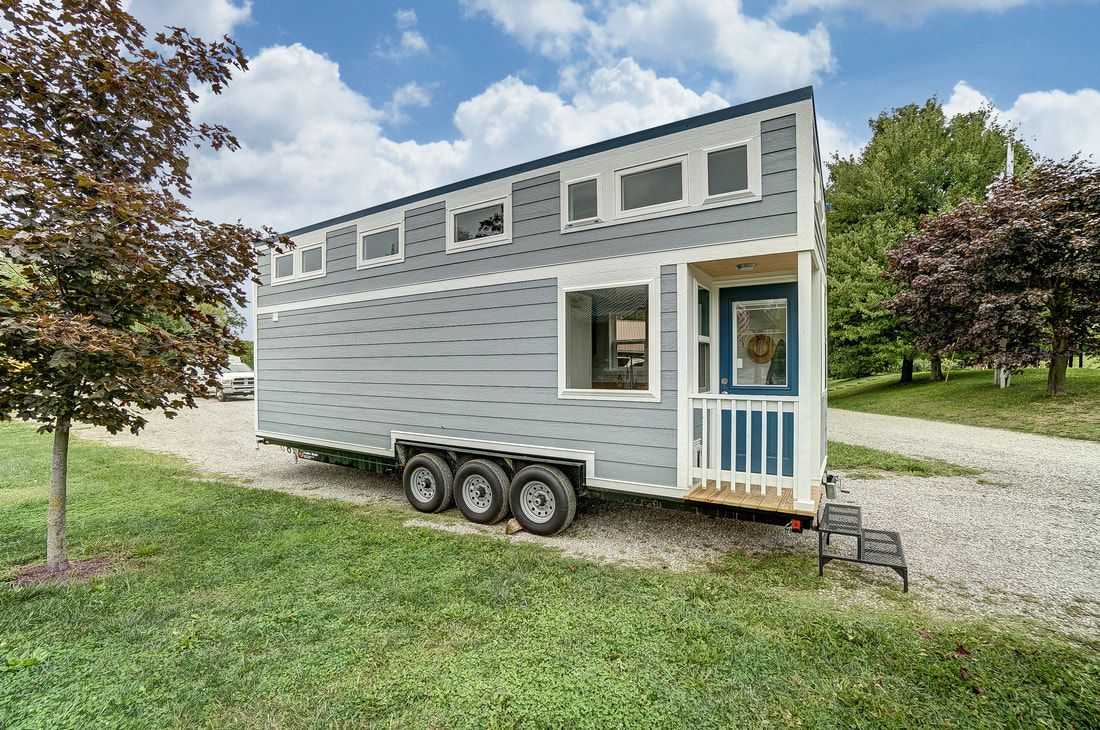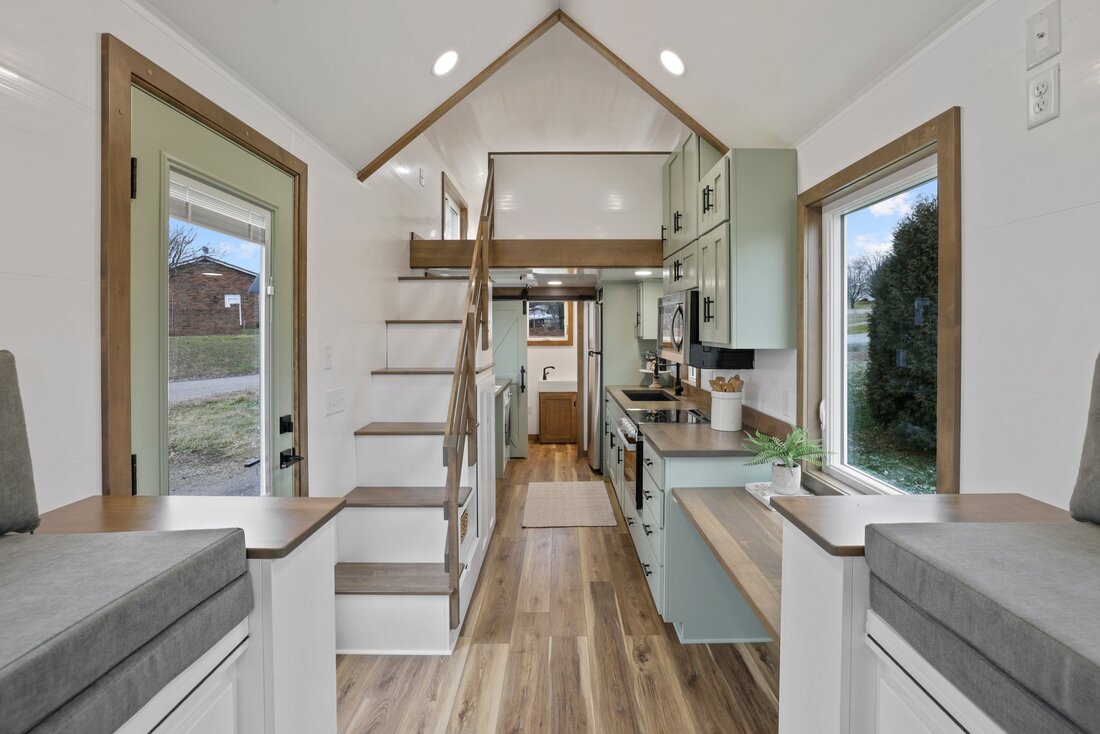|
In celebration of our 7th Anniversary, Modern Tiny Living is excited to announce our FIRST DISCOUNT PROMOTION IN COMPANY HISTORY!
Our adventure began 7 years ago. It was a hot, humid day and we had just completed the exterior of our original tiny home. We had a big vision for tiny living and believed a modern tiny home might bring a smile to someone’s face... and the rest is history. 😊 For the next 7 days, MTL will give the next 7 (and 7 only!) customers up to $7000 in FREE UPGRADES on their new MTL tiny home! Watch the video of Trent and Ada to learn more, and if you want to chat about your options, go to our Contact Us page here, email us at [email protected], or give us a call at 614-259-7042. These spots will fill up fast, so don’t wait to get in touch with us if you’ve been sitting on the fence about going tiny! There are a lot of people and companies out there building (or claming to be building) tiny homes, but very few who have gone through the certification process to become RVIA-Certified. Know the difference before choosing a builder, as it can save you a world of issues and headaches. We've been in this industry for 8 years now, and we've seen it all. Allow us to offer some advice: Don't even consider a tiny house (on wheels) builder that is not RVIA-certified. There is an easy way to ensure that your builder is both qualified and certified to build safe and robust tiny homes, and that's with the RVIA badge of approval.
Here are a few reasons why RVIA certification sets Modern Tiny Living (and other RVIA-certified builders) apart from the rest: Compliance with Standards: RVIA certification ensures that the tiny house meets specific industry standards for safety, construction, and functionality. The certification process involves rigorous inspections and compliance with building codes and regulations. This ensures that the tiny house is built to a high standard of quality, and its components, such as electrical and plumbing systems, meet safety requirements. Access to RV Parks and Campgrounds: Many RV parks and campgrounds have specific regulations and requirements for the types of vehicles allowed on their premises. RVIA certification ensures that your tiny house on wheels meets the necessary criteria to stay in these designated areas. This opens up a wide range of accommodation options, including access to amenities such as electricity, water, and sewage hookups. Insurance and Financing Options: Insurance companies often prefer to work with RVIA-certified structures due to their compliance with industry standards. Similarly, lenders may be more willing to provide loans or financing options for certified tiny houses, as they offer a level of assurance in terms of safety and quality. Resale Value: An RVIA-certified tiny house on wheels typically holds better resale value compared to non-certified alternatives. The certification adds credibility and reassurance to potential buyers, making it easier to sell your tiny house if you decide to move on or upgrade in the future. Infrastructure and Utilities: RVIA-certified tiny houses are designed to connect to existing RV infrastructure and utilities. This means they can easily hook up to electricity, water, and sewage systems in RV parks or campgrounds. Well-Defined Standards: RVIA certification establishes a set of standards that builders must adhere to. As a result, you can have confidence in the construction and know that the house has been built according to established guidelines. While other types of tiny homes, such as those built on foundations or designed for off-grid living, have their own advantages, an RVIA-certified tiny house on wheels stands out for its mobility, compliance with standards, access to RV parks, insurance and financing options, resale value, utility connections, and adherence to well-defined construction standards. These benefits make it an attractive choice for those seeking a mobile lifestyle or the flexibility to move their home as needed. DIY-building your own tiny home from scratch can be a romantic proposition but often falls short when it comes time to frame the home, swing the hammer, or troubleshoot electrical issues. Without a doubt, the tiny house movement has its roots in the DIY-minded individual.
The goal was simple: build a budget-friendly, tiny house and live the minimalist lifestyle. Unfortunately, the results were often subpar, low quality, and outright dangerous. We've seen countless homes that have fallen apart in transit, collapsed, or worst of all, resulted in a fire. Truth told, unless you're an experienced craftsman or general contractor, using a professional tiny house builder like Modern Tiny Living should be the only option. Working with a professional tiny house builder offers several safety and design advantages compared to attempting a DIY tiny house build. Here are some reasons why it's beneficial to work with a professional:
|
Archives
June 2024
|
Modern Tiny Living, LLC. • Columbus, Ohio • © Copyright 2024 Modern Tiny Living • All Rights Reserved


 RSS Feed
RSS Feed
